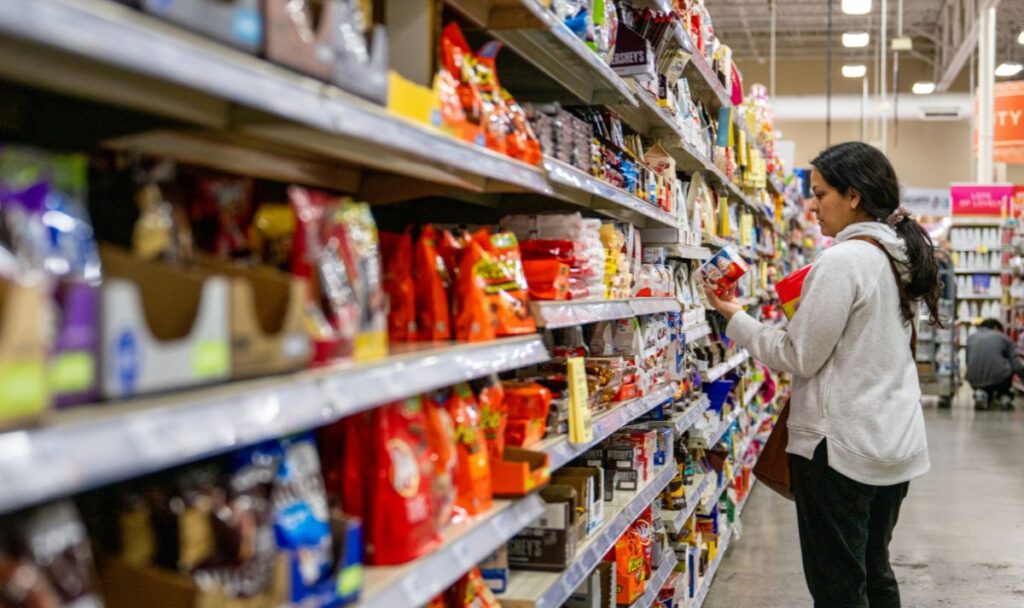Six more states have banned junk food purchases from being bought with Supplemental Nutrition Assistance Program (SNAP) benefits, the U.S. Department of Agriculture (USDA) has announced.
West Virginia, Florida, Colorado, Louisiana, Oklahoma, and Texas have all had new waivers approved that allow each state to modify what can and can’t be bought using food benefits. Across all of these states, the change will impact approximately 8.5 million people.
It brings the total number of states banning junk purchases to 12, following similar waiver approvals earlier this year for Arkansas, Idaho, Indiana, Iowa, Nebraska and Utah.
Why It Matters
SNAP benefits, also known as “food stamps,” are paid to low- and no-income households across the U.S. that would otherwise struggle to afford groceries. Across the country, more than 40 million people receive the allowance.
What To Know
A waiver grants flexibility by modifying specific USDA program rules, enabling states to administer the SNAP program in different ways. Various states currently have SNAP waivers in place, and they were widely implemented during the COVID-19 pandemic to help Americans get better access to food benefits.
The new waivers, while different for each state, mean that starting in 2026 certain types of foods can no longer be bought using electronic benefit transfer cards, which are loaded every month with payments to spend in participating grocery providers across the country.
Junk food generally refers to foods that have lots of calories, particularly those high in macronutrients such as sugar and fat, but little nutritional value. In Texas, the ban will cover soda, energy drinks, candy, and prepared desserts, while in Louisiana, soft drinks, energy drinks, and candy will be banned. Some of the waivers are less restrictive: in Colorado and West Virginia, only soft drinks will no longer be eligible for purchase.
The push to tighten rules around unhealthy purchases has been led by Republican states, with Colorado being the only Democratic state to join the throng.
Proponents of limiting SNAP purchases have argued removing unhealthy foods from the program will improve health outcomes, while others have argued that it controls how America’s poorest eat and fails to address wider problems regarding access to affordable, healthy food.
What People Are Saying
Health and Human Services Secretary Robert F. Kennedy: “For years, SNAP has used taxpayer dollars to fund soda and candy—products that fuel America’s diabetes and chronic disease epidemics.
“These waivers help put real food back at the center of the program and empower states to lead the charge in protecting public health. I thank the governors who have stepped up to request waivers, and I encourage others to follow their lead. This is how we Make America Healthy Again.”
Texas Governor Greg Abbott: “To ensure the health and well-being of Texans, we must promote better, healthier food habits. Earlier this year, I requested a waiver from the USDA to ensure SNAP benefits cannot be used to purchase junk food.
“I applaud [Agriculture] Secretary [Brooke L.] Rollins and the Trump Administration for their approval of this waiver to support and promote healthy eating habits. The state of Texas will continue to consider innovative ways for Texans to lead healthy and productive lives.”
Kavelle Christie, a health policy and advocacy expert and director at the Center for Regulatory Policy and Health Innovation, previously told Newsweek: “The issue isn’t about individuals misusing their benefits, but their limited choices. In many rural areas and food deserts, convenience stores and fast-food chains are often the only available options.
“For many families, fresh produce and healthy meals are luxuries that are unattainable, not because they do not want these foods, but because they are unavailable or too expensive.”
A food desert refers to an area, usually a low-income community, where residents have limited access to affordable and nutritious food, particularly fresh fruits and vegetables.
What Happens Next
Each of the waivers will go into effect in 2026, meaning there will be no immediate changes for SNAP beneficiaries across the impacted states for now. Most come into effect early next year.
Read the full article here

